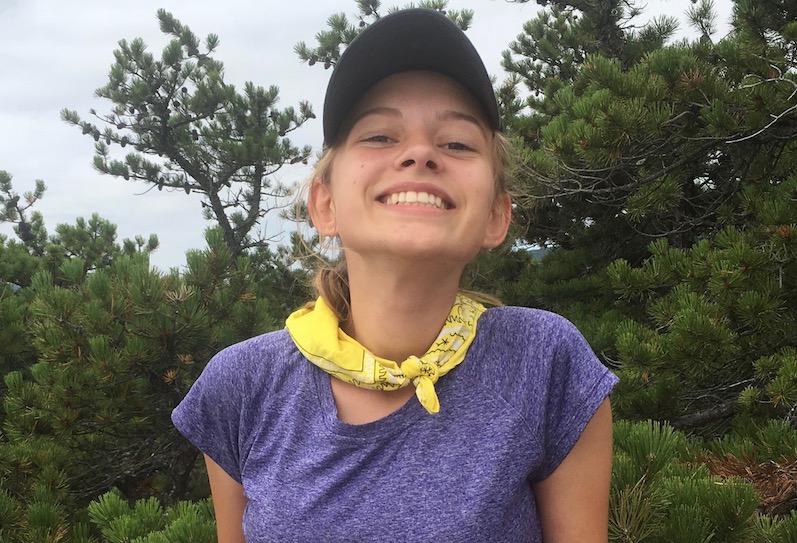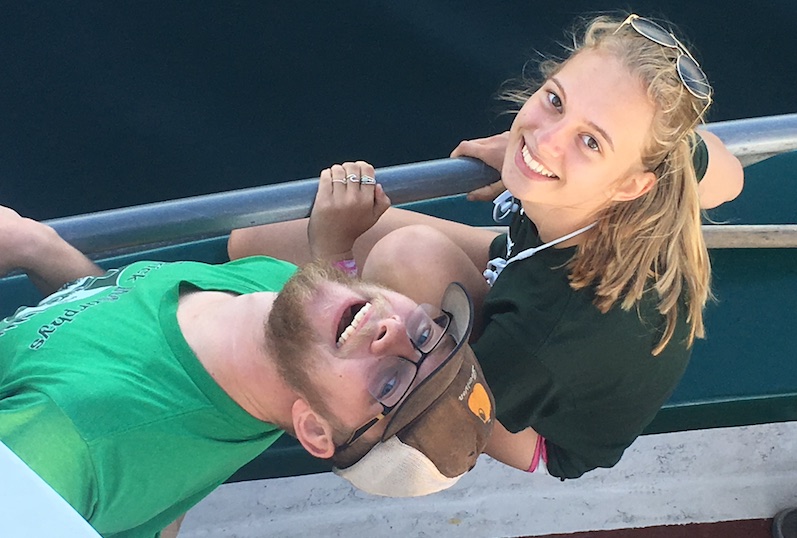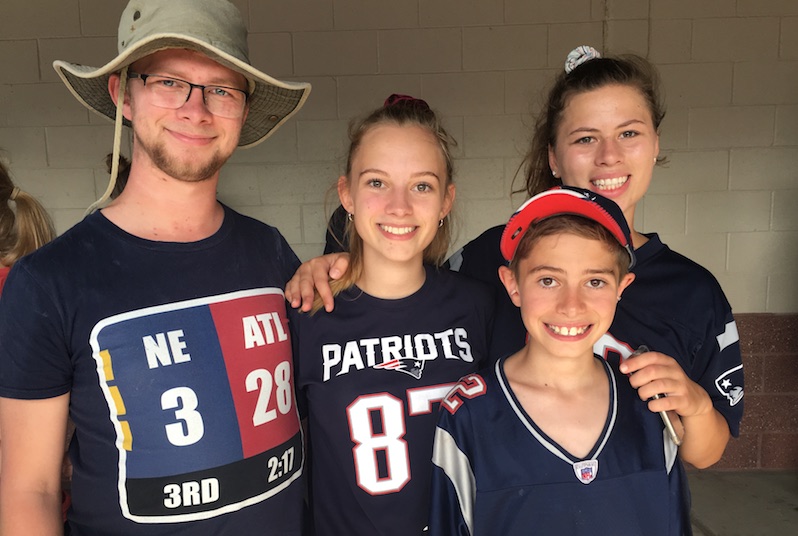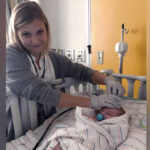Isolde’s story: A concussion leads to 3PD

When Isolde Edson was injured in the fall of 2018, during the last junior varsity soccer game of the season, she had no idea she’d still be dealing with the repercussions nearly two years later.
“During a home game at the end of the season, I jumped up to kick the ball, and a girl from the other team ran into me. I flew into the air and landed on my head,” says Isolde. “I still don’t remember much, but I was taken to the emergency room at Boston Children’s Hospital in an ambulance, and I couldn’t see anything except shapes and blobs of color,”
Isolde was diagnosed with a concussion and sent home. For the first week, she barely left her bed. “I literally slept about 20 hours a day. I had pretty severe symptoms, including constant, intense headaches and nausea.” She also remembers feeling like her emotions were “all over the place.”
Although she started having visitors after the second week, Isolde says she wasn’t feeling like herself, and she found it hard to interact with people. And her symptoms were too severe for her to return to school right away.
A few weeks into her recovery, she started doing physical therapy (PT) at Boston Children’s with Danielle Barnack. “Danielle was amazing,” says Isolde. “She taught me that I should only focus on what I could do in the moment, and whatever that is, is okay. It was a helpful mindset for me to learn, instead of thinking I should be able to do more.”

A visit to the Multidisciplinary Concussion Clinic
In January of 2019, Isolde had an appointment with the Multidisciplinary Concussion Clinic, where she met Dr. Jacob Brodsky, director of the Balance and Vestibular Program.
“Dr. Brodsky is absolutely fabulous,” says Isolde. “The first time I met him, I was feeling really discouraged, because I had been doing everything I should, and was not seeing the results I wanted.” Isolde was still having constant headaches. She couldn’t read for more than a few minutes and her tolerance level for most activities, including school, was very low.
“After hearing my symptoms, Dr. Brodsky perfectly described what I was feeling,” says Isolde. “It was so validating to have a doctor tell me that I wasn’t crazy. What I had was real and he could help me. I went into the appointment feeling discouraged, and left feeling like a different person.”
Diagnosis: Persistent postural-perceptual dizziness
Dr. Brodsky told Isolde she had persistent postural-perceptual dizziness (PPPD or 3PD). He explained that when her brain initially healed, it didn’t heal in conjunction with her vestibular system, and that was causing her symptoms. Her treatment would involve different types of therapy to help link those two systems. Together, they worked on a comprehensive treatment plan that focused more on balance and movement. Isolde continued to work with Danielle on PT, and began vision therapy in December 2019 with occupational therapist Chelsea Mello.

Making ‘tremendous progress’
“I’ve made tremendous progress, and have been able to do many more things since starting this treatment plan,” says Isolde. “When I met with Dr. Brodsky a few months ago, he said ‘I was riding the wave of recovery,’ which is a nice way to think about it. I’m learning to look back at my progress, instead of focusing on what I can’t do. It’s really encouraging.”
Early this year, before the coronavirus pandemic hit, Isolde was back in school nearly full time and was planning to try out for the ultimate frisbee and soccer teams. And although she misses many of her activities, she says the extra break from stimulation has helped her recover even further, and online classes allowed her more freedom to complete schoolwork at her own pace.
While Isolde’s vision therapy has been on hold, Chelsea taught her a series of exercises to do at home to maintain her visual stimulation. She’s also been checking in with her team online, making slow but steady progress.
“Because of the nature of 3PD, I don’t have any definitive answers on when I’ll be fully recovered, and that’s been tough to deal with,” says Isolde. “But Dr. Brodsky has helped me come to terms with accepting where I am, and knowing that’s okay. He’s been the perfect doctor to help me through my recovery.”
Learn more about the Balance and Vestibular Program.
Related Posts :
-

From pain to purpose: An update on Dylan’s traumatic brain injury
We first introduced you to Dylan four years ago, when a traumatic brain injury led him to the Department of ...
-

Bedside tech predicts newborns’ outcomes after therapeutic hypothermia
Hypoxic-ischemic encephalopathy (HIE), brain injury caused by oxygen deprivation around birth, is a common cause of admission to the neonatal ...
-

Healthy behaviors may counteract the long-term effects of concussions
When it comes to football, concussion, and long-term health, many people have already made up their minds: They believe that ...
-

Research 2022: Tackling disease in new ways
Researchers across Boston Children’s spent 2022 imagining new solutions to old challenges in health and medicine, opening the door to ...





